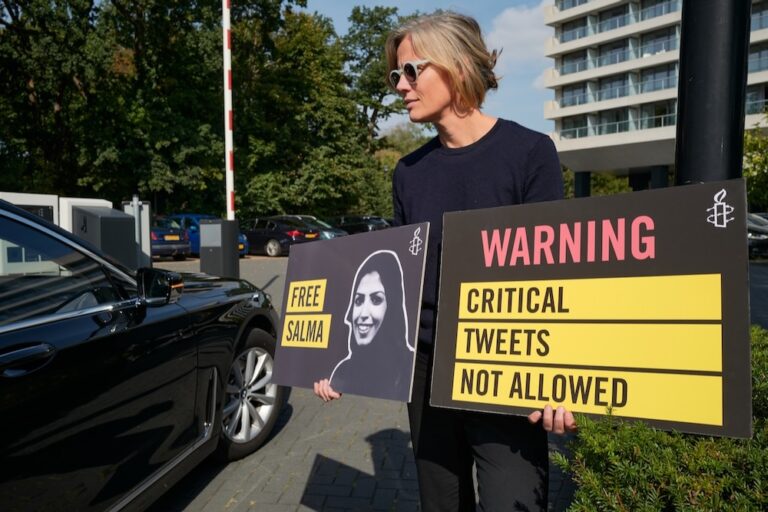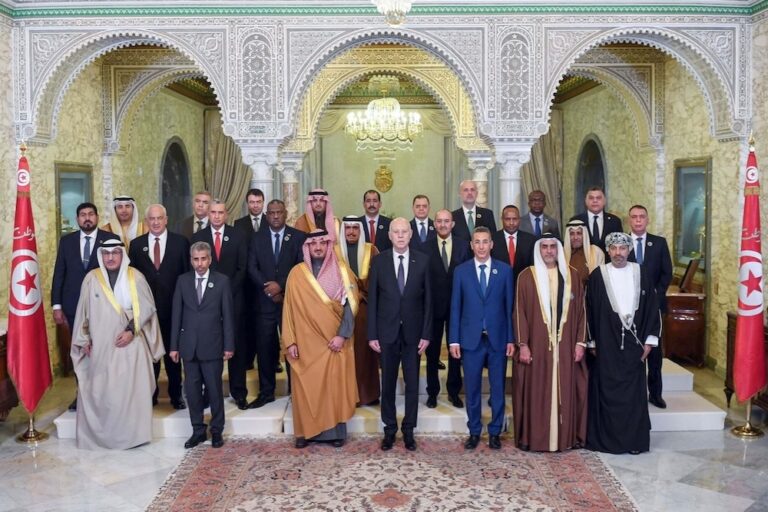Driss Chahtane and Abdel Aziz Gogasse have been charged with publishing false information after publishing an article about close links between certain governors and the Authenticity and Modernity Party of Fouad Ali El-Himma, a close friend of the king.
(RSF/IFEX) – 20 August 2011 – The following is an RSF round-up of recent developments in Yemen, Bahrain, Morocco, and Tunisia:
Yemen
Reporters Without Borders condemns the attempted assassination of deputy information minister Abdu Al-Ganadi. A bomb exploded outside his home on the morning of 18 August without causing any casualties. An investigation is under way to identify those responsible and their motives.
Suhail TV cameraman Ahmad Firas was arrested by soldiers from Daylami airbase on the afternoon of 12 August as he was driving towards Sanaa with his wife and children, who were released a few hours later. The soldiers, who seized his equipment, gave no reason for his arrest and are still holding him. The same soldiers previously arrested Al-Sahwa reporter Yahi Al-Thalayan and held him for 10 days before letting him go.
Mohamed Ayda, the Sanaa bureau chief of the US Arabic-language TV station Al-Hurra, was the target of an attack on the evening of 10 August by several unidentified men who tried to stab him with curved janbiya daggers. He was rescued by several passers-by. This was not the first time that he has been the target of threats and attacks.
The YemenOnline daily news website was defaced by hackers for the fourth time in the past two years.
Reporters Without Borders urges the Yemeni authorities to investigate these constant attacks on the freedom of journalists and the media and to impose appropriate sanctions so that the media’s work is not obstructed by members of the security forces or by groups that use violence.
Bahrain
The Bahraini authorities have blocked access to the website of the Bahrain Justice and Development Movement, a new London-based group consisting mainly of Bahraini exiles that denounces human rights violations in Bahrain and advocates democratic reforms. The website was about to post an article in which Ali Al-Aswad, a former parliamentarian now living in exile, said he feared a civil war could break out in Bahrain. Without elaborating, the authorities accused the site of “breaking Bahrain’s laws.”
Morocco
Reporters Without Borders strongly condemns the charges of publishing false information that have been brought against Driss Chahtane, the editor of the Arabic-language weekly Al-Michaal, and one of his reporters, Abdel Aziz Gogass, for a 20 July article about close links between certain governors and the Authenticity and Modernity Party, a new party founded by former interior minister Fouad Ali El-Himma, a close friend of the king. After being interrogated four times, the two journalists are due to be tried on 29 August.
Moustapha Alaouie, the editor of Al-Oussboue-al-Sahafi, Morocco’s leading Arabic-language weekly, and reporter Youssef Meskine have been summoned for questioning over an article on the same subject on 4 August. They could also be prosecuted.
“We urge the Moroccan authorities to end this judicial harassment, which runs counter to the intention announced by the government in April to reform the press law and make it more democratic,” Reporters Without Borders said. “We regret that it has become so difficult for Moroccan journalists to cover domestic politics in the run-up to October’s parliamentary elections.”
Two journalists were meanwhile attacked by members of the Moroccan security forces while covering a demonstration in El Aaiún (Western Sahara) on 12 August. They were Mohamed Ayache Buihi, a reporter for the Moroccan daily Al-Massae and editor of the Saharanow.com website, and Hamid Bouffous, a reporter for the newspaper Risalat Al-Oumma and for the Sahara Press and Hespress websites.
Buihi was beaten with a baton on the back and legs. After he showed his press card, the security forces tried to take his camera, and then threw him to the ground and insulted him. Bouffous was treated in a similar manner, despite wearing a vest with the word “Press.”
These developments point to an escalation in repression of journalists and netizens by Moroccan authorities.
Tunisia
Reporters Without Borders also strongly condemns an attack on Radio Gafsa, a radio station located in the southern city of Gafsa, by about 20 men, most of them wearing hoods, on 2 August. They ransacked the premises and terrified employees.
“This incident shows that Tunisia still has enemies of media freedom who are ready to raid news media and intimidate journalists,” Reporters Without Borders said.
“The authorities must discourage this kind of behaviour by finding these people and punishing them.”


